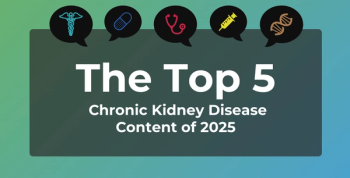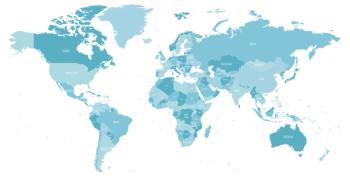
Chronic Kidney Disease
Latest News
Video Series

Latest Videos
Shorts

Podcasts
More News

Chronic kidney disease complicates cancer treatment, leading to reduced chemotherapy use. Personalized approaches are essential for optimal patient outcomes.

Experts advocate for a shift in CKD care towards prevention and maintaining kidney health, emphasizing lifestyle changes and early interventions.

Explore safe IBD treatment options for patients with chronic kidney disease, focusing on tailored approaches to optimize kidney health and medication efficacy.

This year’s most-read articles on CKD highlighted research and insights on drug approvals, guidelines, and value-based care.

Experts met in Park City, Utah, on October 7, 2025, to discuss how new technologies can help address chronic kidney disease.

Sibeprenlimab gains accelerated approval from the FDA for IgA nephropathy, showing significant proteinuria reduction and offering convenient self-injection treatment.

Chronic kidney disease now affects more than 788 million adults globally, with rising prevalence, increasing mortality, and substantial contributions to cardiovascular deaths

Improving outcomes in chronic kidney disease relies on improving patient engagement.

Finerenone significantly reduced UACR in type 1 diabetes with chronic kidney disease, offering new hope for treatment.

Researchers have developed a machine learning model that reliably predicts pulmonary hypertension (PH) risk in patients with chronic kidney disease (CKD).

Though patients with type 2 diabetes or chronic kidney disease (CKD) face a greater risk of heart failure (HF) following acute myocardial infarction (AMI), patients without those comorbidities also benefit from empagliflozin.

Overlapping metabolic mechanisms drive both chronic kidney disease (CKD) and valvular heart disease (VHD), a new review outlined.

CD45 + C1q + CCR8+ cells were found to be a novel immune-cell subset associated with kidney disease severity and progression risk.

Metallomic correlations suggest environmental and metabolic metals act together to accelerate renal damage.

The class of diabetes drug has a protective effect on the kidneys for reasons beyond glucose control.

Patients with chronic kidney disease (CKD) stages 3b or 4 experienced slower decline in estimated glomerular filtration rate 20 months after enrollment in a value-based kidney care program.

Electronic health record (EHR)–based “e-phenotypes” combining lab data, coding, and AI could dramatically improve early detection and management of chronic kidney disease.

Treating constipation with lubiprostone may confer renal benefits in chronic kidney disease by modulating microbiome-driven pathways.

Only a fraction of countries in the world have designated chronic kidney disease as a health priority.

As the prevalence of both chronic kidney disease (CKD) and heart failure (HF) increases, therapies targeting shared pathways are one of the most promising strategies to alter the trajectory of these diseases.

A new joint guideline from the American Heart Association and the American College of Cardiology emphasizes early treatment, close perinatal blood pressure monitoring, and incorporating the PREVENT risk calculator to personalize care.

Metabolic syndrome severity is a meaningful marker of chronic kidney disease risk even when patients do not have other major risk factors.

A qualitative study found strong support for primary care provider–nephrologist comanagement of chronic kidney disease (CKD), but persistent deficits in CKD understanding remain.

As the prevalence of chronic kidney disease (CKD) continues to rise, empowering primary care providers (PCPs) with the tools, training, and collaborative frameworks needed for optimal management is a public health priority, emphasize the researchers.

The use of retinal images can help investigators noninvasively identify chronic kidney disease and assess patient prognosis.





















